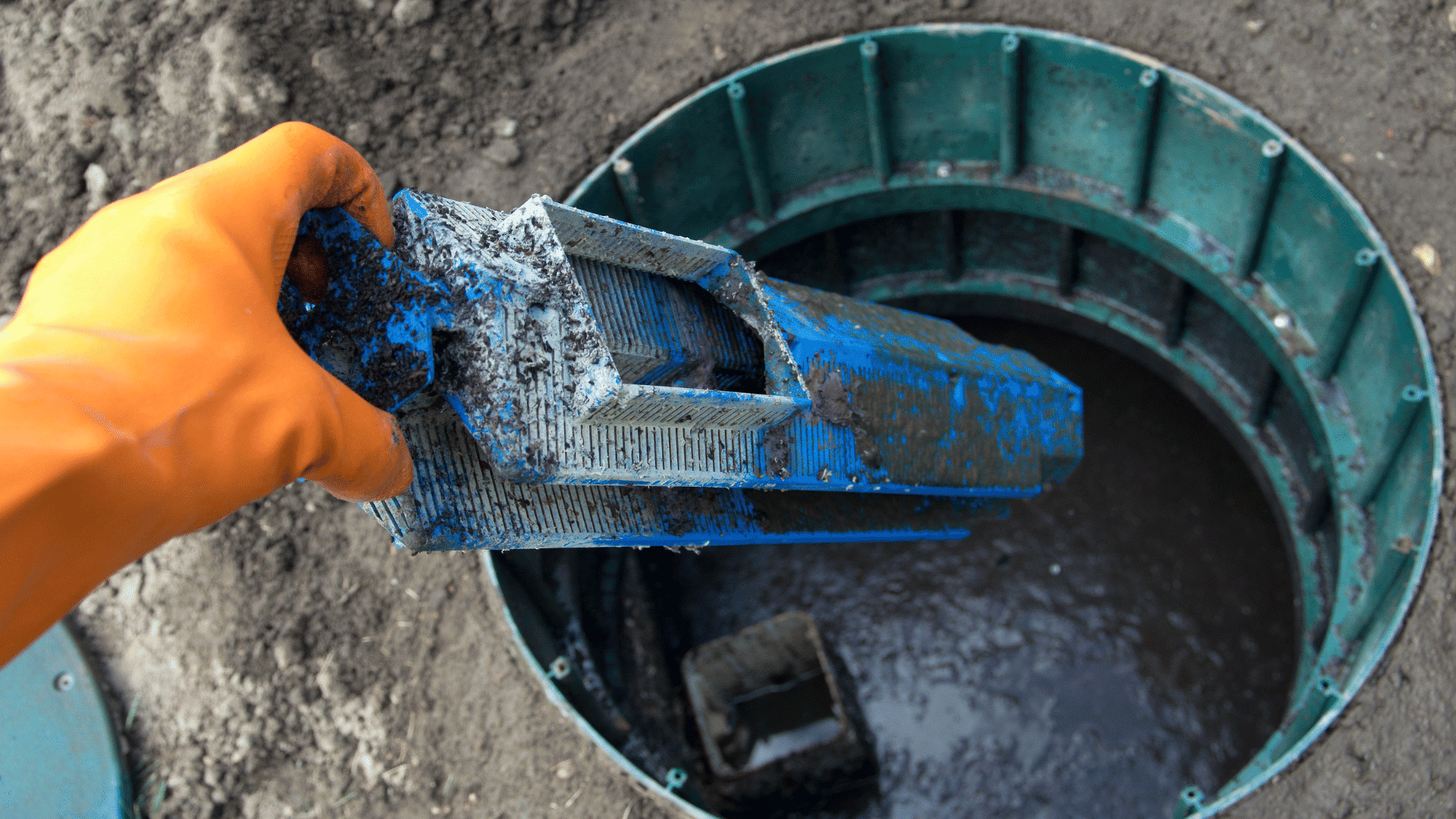
Does Every House Have a Septic Tank?
When it comes to managing wastewater, most homeowners don’t give it much thought until there’s a problem. However, understanding whether your home relies on a septic tank or is connected to a public sewer system is crucial for effective maintenance and preventing costly issues. But does every house have a septic tank? The short answer is no. About 25% of homes in the U.S. use septic systems, while the remaining 75% are tied to municipal sewer systems.
At Upfront Septic & Plumbing, we specialize in septic system services, offering expertise to homeowners across King and Pierce County, Washington. This blog will delve into everything you need to know about septic tanks—from how they work to identifying whether your home has one, and the pros and cons of each system.
What Is a Septic Tank and How Does It Work?
A septic tank is an underground, watertight container designed to manage and treat wastewater from your home. It separates solids, liquids, and oils, allowing water to be filtered naturally through a drain field. But does every house have a septic tank? Not necessarily, as many homes are connected to municipal sewer systems instead.
How a Septic Tank Works
- Wastewater Enters the Tank: All water from your home flows into the septic tank, where it separates into three layers:
- Sludge: Solid materials that sink to the bottom.
- Scum: Fats, oils, and grease that float to the top.
- Effluent: Liquid waste that remains in the middle layer.
- Natural Filtration: The effluent exits the tank through pipes into the drain field. Here, the soil acts as a natural filter, removing harmful bacteria and contaminants.
- Regular Maintenance Cycle: Over time, sludge and scum accumulate and need to be removed through professional pumping to keep the system functioning properly.
Septic systems are efficient and eco-friendly when properly maintained, but neglect can lead to significant problems. Does every house have a septic tank capable of handling modern wastewater needs? It often depends on the home’s location, infrastructure, and local regulations.

How Do Sewer Systems Differ from Septic Tanks?
Sewer systems and septic tanks both manage wastewater, but they function differently. Here’s a side-by-side comparison:
| Feature | Septic Tank | Sewer System |
|---|---|---|
| Ownership | Homeowner’s responsibility | Public (managed by municipality) |
| Cost | Lower long-term cost | Monthly sewer fees |
| Maintenance | Requires regular pumping and inspections | Minimal homeowner involvement |
| Environmental Impact | Environmentally friendly with proper care | High energy use and water treatment demand |
Does every house have a septic tank as part of its wastewater management system? No, but for homes that do, understanding the differences between septic and sewer systems is vital for proper care and maintenance.
How Can You Tell If a House Has a Septic Tank?
Determining whether your home has a septic tank or is connected to a public sewer system can
be done through several methods. Knowing the answer to the question, “Does every house have a septic tank?” can also help you identify the type of maintenance you’ll need.
1. Inspect Property Records
Visit your local municipal office or access property records online. These documents often detail how wastewater is managed on the property.
2. Look for Physical Signs
- Lid or Access Hatch: A visible lid or access hatch in the yard is a clear indicator of a septic tank.
- Greener Grass Patches: Over the drain field, grass tends to grow faster and greener due to natural fertilization.
3. Check Utility Bills
Sewer-connected homes often have a separate sewer fee included in their water bill. If you don’t see such charges, your home likely has a septic tank.
4. Call a Professional Inspection Service
At Upfront Septic & Plumbing, we provide professional property inspections to determine if a septic tank is present and ensure it’s functioning properly. For homeowners still wondering, “Does every house have a septic tank?” our inspections can provide clarity and peace of mind.
What Types of Homes Are Likely to Have Septic Tanks?
Septic tanks are typically found in specific types of homes due to their location, age, and infrastructure. But does every house have a septic tank? No, but certain homes are more likely to use them.
- Rural Areas: Homes in rural locations often rely on septic systems because municipal sewer lines don’t extend to these regions.
- Older Homes: Properties built before sewer systems became widespread may still have septic tanks.
- Suburban Homes with Large Lots: In some suburban areas, large properties with significant land may have septic systems instead of public sewer connections.
Understanding these factors can help answer the question, “Does every house have a septic tank?” and determine if your home is likely to use one.
Key Considerations for Homes with Septic Tanks
Owning a home with a septic tank comes with its own set of responsibilities. Here’s what you need to keep in mind:
1. Maintenance Requirements
- Pumping: Septic tanks must be pumped every 3–5 years to remove accumulated sludge and scum.
- Inspections: Regular inspections help identify potential issues before they become costly problems.
2. Local Regulations
Different regions have specific rules about septic system inspections and maintenance. Ensure compliance with your local health department to avoid fines or penalties.
3. Waste Restrictions
Septic systems are sensitive to what gets flushed or drained:
- Avoid flushing non-biodegradable items like wipes or hygiene products.
- Keep grease, oils, and harsh chemicals out of your drains.
4. Environmental Impact
A well-maintained septic system is environmentally friendly, filtering wastewater naturally and reducing the strain on public systems. Does every house have a septic tank capable of achieving these benefits? No, but those that do require careful attention to ensure long-term efficiency.
Pros and Cons of Septic Tanks
Pros
- Cost Savings: No monthly sewer fees.
- Environmental Benefits: Treats wastewater naturally and reduces demand on municipal systems.
- Longevity: Properly maintained tanks can last 20–40 years.
- Independence: Operates independently of municipal systems.
Cons
- Upfront Costs: Higher initial installation expense.
- Maintenance Needs: Regular pumping and inspections are mandatory.
- Risk of Failure: Neglect can lead to costly and environmentally hazardous failures.
- Limited Capacity: Larger households may strain the system. But choosing the right size definitely solves this problem.
Does every house have a septic tank with such pros and cons? No, but for homes that do, weighing these factors is crucial.

What Are the Different Types of Septic Systems?
Septic systems vary depending on soil conditions, household size, and local regulations. Common types include:
- Conventional Septic Systems: Utilize gravel or pipe drain fields for standard soil conditions.
- Aerobic Treatment Systems: Inject oxygen into the tank to speed up bacterial breakdown of waste.
- Mound Systems: Built above ground for areas with high water tables or shallow soil.
- Drip Distribution Systems: Use small tubes to distribute effluent evenly, ideal for properties with limited space.
Each system has its own advantages and maintenance requirements. Upfront Septic & Plumbing can help you choose and maintain the right one for your home. Does every house have a septic tank designed for these conditions? Only homes meeting specific criteria are equipped with such systems.
How Upfront Septic & Plumbing Can Help
At Upfront Septic & Plumbing, we’re experts in septic system services. Here’s how we can assist you:
- Inspections: Identify issues before they escalate.
- Maintenance: Regular pumping and cleaning to extend system lifespan.
- Repairs and Replacements: From minor fixes to complete system overhauls.
Our skilled team serves King and Pierce County, offering reliable, affordable solutions tailored to your needs.
When to Call a Professional
Knowing when to call a professional can save you from costly repairs. Look out for these warning signs:
- Slow Drains: Persistent clogs in sinks or toilets.
- Backups: Water backing up into your home.
- Unpleasant Odors: Foul smells near the tank or drain field.
- Wet or Soggy Areas: Pooling water in your yard.
If you notice any of these issues, contact Upfront Septic & Plumbing for prompt, professional service. So, does every house have a septic tank in need of professional attention? Not all, but for those that do, timely action is key.
Final Thought: Understanding Your Home’s Wastewater Management
Septic tanks play a vital role in managing wastewater for many homes, especially in rural or suburban areas. While they require maintenance, their long-term benefits often outweigh the challenges. By staying informed and proactive, homeowners can avoid costly repairs and ensure their septic systems run efficiently. While not every house has a septic tank capable of delivering these advantages, for those that do, proper care unlocks its full potential, ensuring efficiency, reliability, and long-term value for homeowners.
At Upfront Septic & Plumbing, we’re here to help homeowners in King and Pierce County navigate all aspects of septic system care, from inspections to repairs. Whether your home has a septic tank or you’re unsure about its wastewater setup, we’re just a call away.
Contact Us: Get a 10-Second Septic Quote!
Ready to take control of your septic system? Upfront Septic & Plumbing offers quick and reliable solutions for homeowners across King and Pierce County.
- Call us at: (253) 364-7416
- Get a Quote Online: It only takes 10 seconds!
Trust Upfront Septic & Plumbing for all your septic system needs. Reach out today to ensure your home’s wastewater management is safe, efficient, and stress-free.
